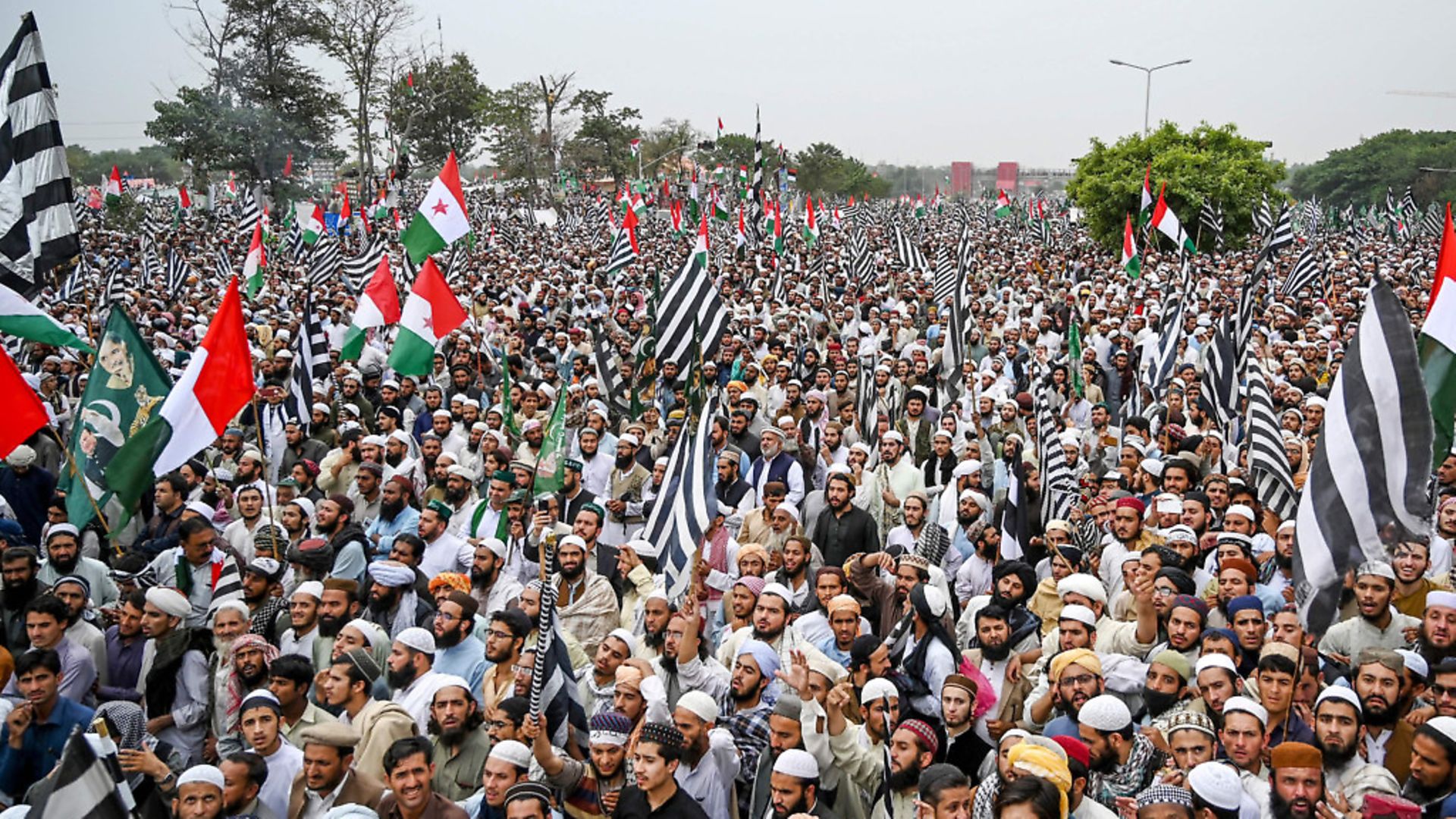
WILL SELF ponders why perceptions of Pakistan are so bogged down in prejudice, ignorance and cliché.
The man in the late-night convenience store on Clapham Road was watching his mobile phone, which lay on the counter beside a display box of Wrigley’s chewing gum and the yellow disc punters touch their Oyster cards to once they’ve re-upped. The shopkeeper – who looked to be of South Asian heritage – was clean shaven, but the man on the pocket-sized screen was extravagantly bearded; the former was silent, head bowed to his electronic missal – the latter, flanked by black-and-white flags, was ranting; quite possibly in Urdu.
“What’s he on about?” I asked idly, as I plonked my items on the counter – roasted and salted almonds and cashews as it happens: I’m hoping to save the planet by reintroducing the hunter-gatherer lifestyle to south London.
“Do you know anything at all about Pakistani politics?” The smooth-faced man replied forthrightly.
“Not much,” I said, “is this character something to do with the march on Islamabad?”
“Precisely so – he is Fazal-ur-Rehman, the leader of the Muslim clerical party.”
“Ah, yes – I’ve heard of him; he’s got some beef with Imran Khan, hasn’t he? Says Khan is a tool of the army…”
“‘Khan a tool of the army!’ I tell you Rehan’s got a bloody nerve – it’s he who’s an even bigger tool of the army!”
“Are you from Pakistan yourself?”
“No – I’m actually Indian…”
“But a Muslim?”
“Yes, but this isn’t any kind of religious issue – it’s about honesty, and Khan is an honest man. People in the west would do well to understand this…”
I paid for the nuts and left the shop scratching my own: It had been a short exchange, but a revealing one. I’d tried to shift the conversation from the political and the specific to the personal and the general, so as to hide my feeble grasp on the politics of the region, and Pakistan in particular – “not much” was really a chronic overstatement.
I went to school in North London, in the 1970s with the first generation immigrant sons of Gujarati families exiled from East Africa by the post-independence regimes in Uganda and Kenya – they comprised about 33% of the class, and were dubbed – quite inaccurately – “P***s”; while the Jewish boys, who comprised a further 33%, were of course “Y**s”. As for the remaining moiety – these scions of noble native Britons rejoiced in the ascription “yocks”, a back-slang formation from ‘goy’ the Y**dish word for non-Jews. You might have imagined that this foisting of their own ascription on to oppressor might have gladdened the put-upon Jewish boys – but the truth of the matter is I can recall no real anti-Semitism or racism beyond the raw fact of these epithets.
This was almost certainly because of my own half-Y**, half-yock status: My closest school friend was in fact the only Pakistani in the class, and years later he told me that having to listen to P***-this and P***-that for years was soul-destroying, while he suspected that for the Gujarati boys such ignorance was simply water off a Bombay duck. Anyway, from time to time I’d visit my friend’s house – and yes, I found the ambience quite different to my own: Different food, different furnishings, and a different sort of maternal presence. My friend wanted to escape his own heritage: He was an early adopter – and began recording films off of the television using the Betamax format, long before most people even knew the technology was available.
Of course, we revered American movies – and through them spent, as do so many young people, far more time in a sort of Los Angeles of the mind than we ever did in red brick wastes of the London ‘burbs; let alone Islamabad – which was where Fazal-ur-Rehman’s supporters’ convoy ended up after traversing a country which, for most of us in Britain, remains a strange sort of terra incognita. Sajid Javid is the chancellor of the exchequer, Sadiq Khan the mayor of London – much is made of their humble immigrant origins, but how seldom we pass through these bowdlerised biographies, to enter some Pakistan of the mind.
What mental image do we have of the towns and villages the Jamiat Ulema-e-Islam supporters wended their way through, piled high on flatbed trucks, shouting, waving their black-and-white-striped banners and flags? Dust, heat, boxy single-storey compounds – a flat plateau, with, arranged here or there on its parched fields, a single water buffalo, or primitive irrigation pump, for picturesque purposes. This is no topography – it’s the merest cliché: If we think about Pakistan any further, it’s in the context of its contested borders in Kashmir and Waziristan. Yes, the metonym most powerfully expressive of our relationship with this nation of nearly two hundred million people, a million of whose descendants live among us, remains a compound of ignorance and prejudice. When I hear the likes of Truss and Raab talk about the great trade deals we’re going to strike with our “partners in the Commonwealth” (Tory speak for “former colonies”), such is their casual assurance, it sounds to me like: “I’m just going down the P*** shop to get…”










